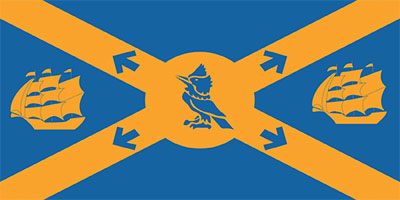Nova Scotia
Origin of the Name
Nova Scotia was named by Sir William Alexander, who received a grant to all the land between New England and Newfoundland from King James VI of Scotland (King James I of England) in 1621. The official charter was in Latin and the name "New Scotland" retained its Latin form - Nova Scotia.
History
The Mi'kmaq of the Algonquian linguistic group inhabited Nova Scotia long before the arrival of European explorers and were among the first of Canada's Aboriginal peoples to see Europeans. The Mi'kmaq allied themselves with the French throughout early Canadian history, helping them adjust to the land and fight the British.
All of Nova Scotia, as well as parts of Quebec, New Brunswick and Maine, was originally known as Acadia and mainly settled by the French. Fur trader Pierre de Monts established the first successful agricultural settlement in Canada at Port-Royal (now Annapolis Royal, Nova Scotia) in 1605. For the next century, the British and the French fought over the area. Control passed back and forth until 1713, when all of Acadia, except Île Royale (now Cape Breton Island), was ceded to the British under the Treaty of Utrecht.
After the Seven Years War, Nova Scotia included Saint John's Island (as Prince Edward Island was then known), Cape Breton Island and the area now known as New Brunswick. In 1769, Saint John's Island separated from Nova Scotia. In 1784, after a great influx of loyalist refugees from the United States, Nova Scotia was partitioned to create the colonies of New Brunswick and Cape Breton Island. However, Cape Breton again became part of Nova Scotia in 1820.




